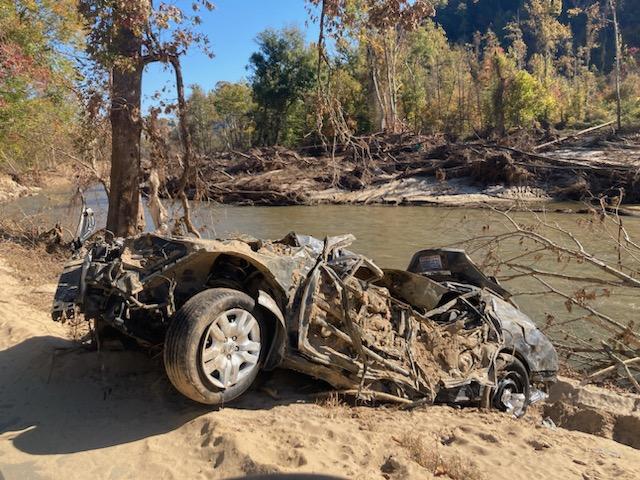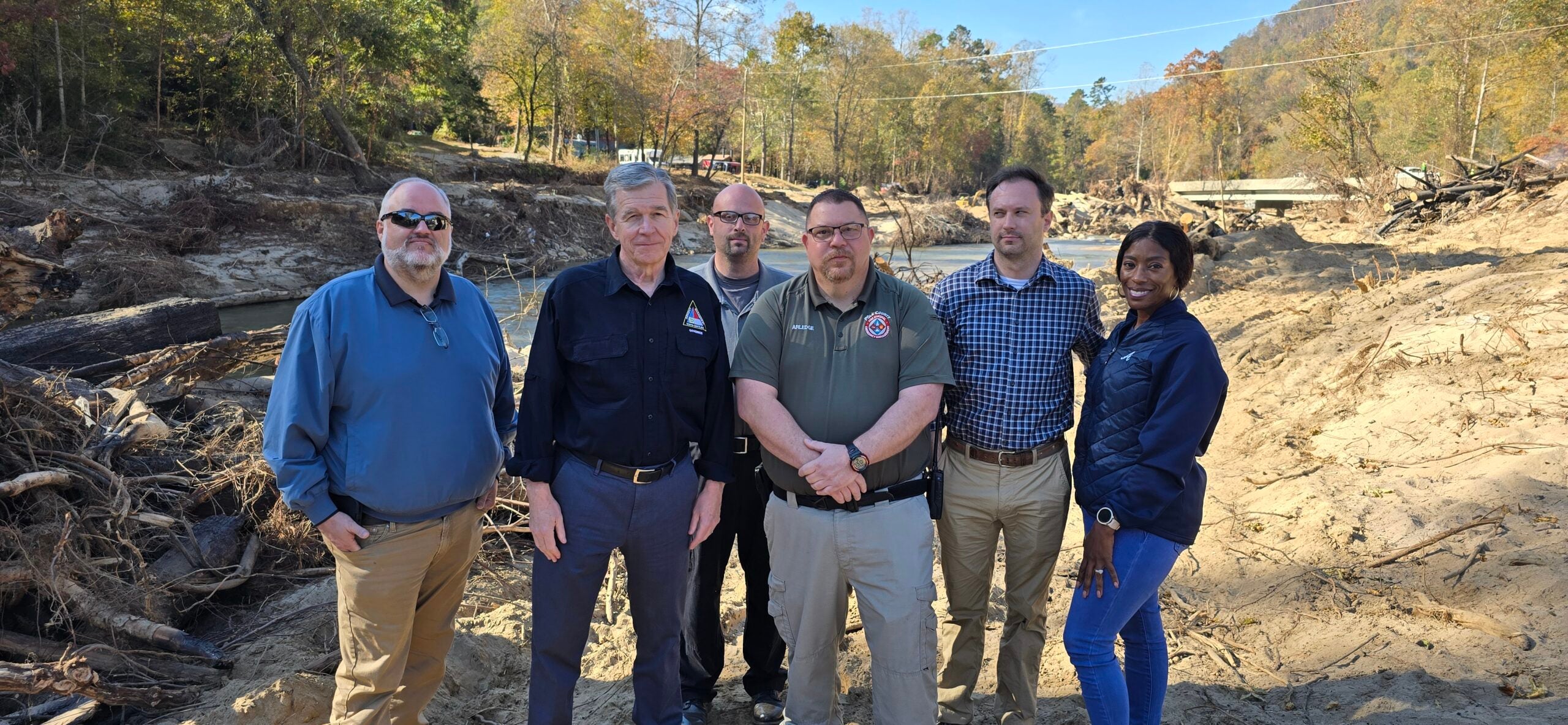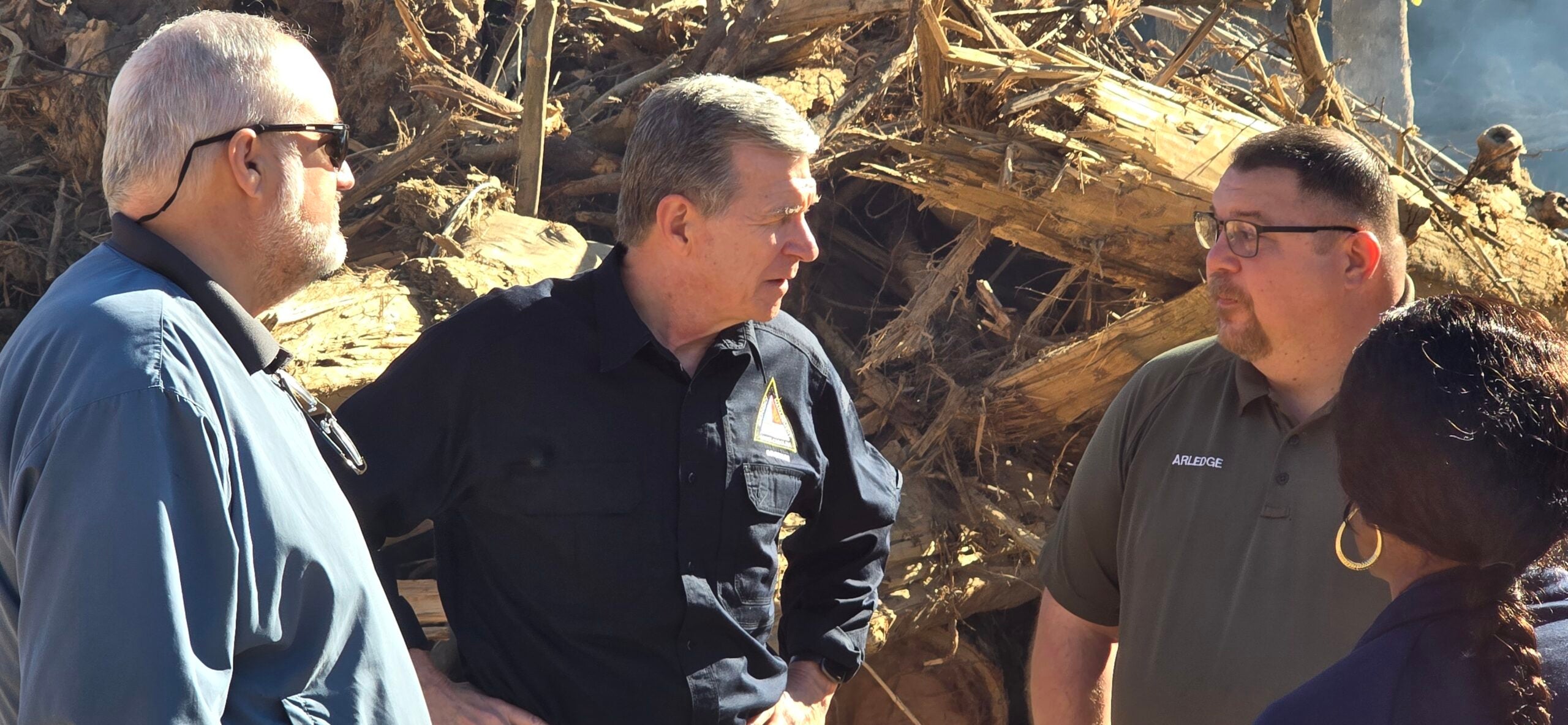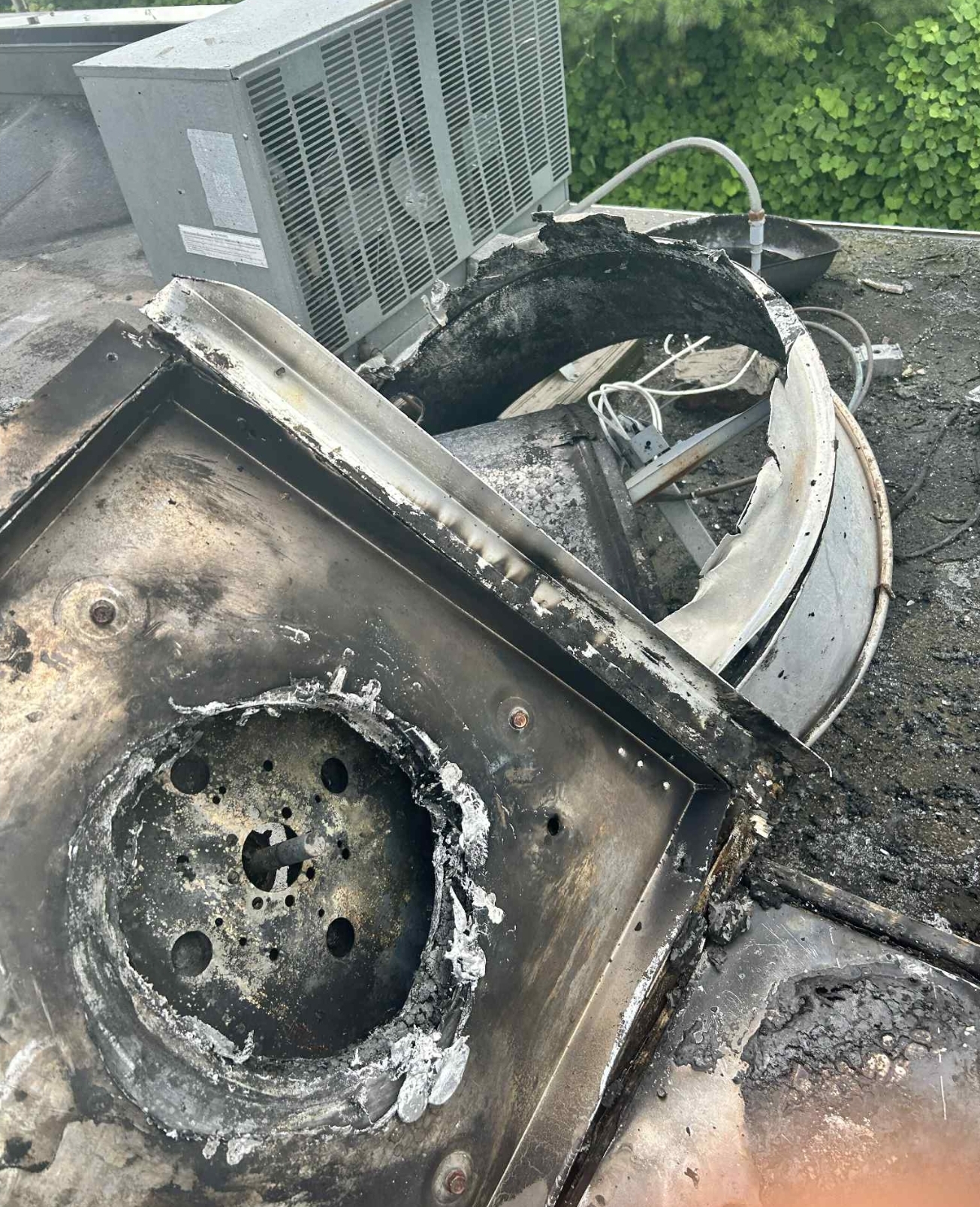Governor Roy Cooper surveys damage in Polk County Friday morning
Published 2:28 pm Friday, October 25, 2024
|
Getting your Trinity Audio player ready...
|
Visits Green River Cove area near Saluda to speak with local officials
SALUDA—North Carolina Governor Roy Cooper visited Polk County Friday morning to survey damage in the Green River Cove area and to speak with county officials and others impacted by Tropical Storm Helene.
The area was one of the hardest hit in the county. The storm downed hundreds of trees, leaving many sections of the cove only accessible by foot or by air for days. Floodwaters and mudslides displaced dozens of residents and destroyed homes and vehicles, piling tons of debris across properties along the Green River.
Trending
Cooper spoke directly with County Manager Marche Pittman and Polk County Emergency Director Bobby Arledge, hearing details of the local response.
- A car destroyed by Tropical Storm Helene dangles at the edge of Green River Cover Rd., serving as a reminder of just how hard the storm hit this area. (Photo by Storme Smith)
- Gov. Cooper, Marche Pittman, Bobby Arledge and others stop for a photo.
- Local officials hear from Gov. Roy Cooper Friday morning.
- The Green River Cove was one of the hardest areas hit by Helene in Polk County.
“People from across North Carolina are thinking about you,” Gov. Cooper said from a site devastated by the storm about a mile below the Fishtop access point. “When the cameras go away and reporters go away, continuing to focus on the recovery [is key]. One of the things I’m focused on is opening as many avenues of funding as we possibly can right now, to get as many commitments as we can right now.”
Arledge shared details of rescue operations during the historic storm and spoke with the governor about the county’s current status.
“We had 37 people rescued from the cove area, right here,” Arledge told the governor. “We did several water rescues, you know, after people tried to drive around signs, through water, got them out. We’ve had a lot of help.”
When asked by the governor about temporary housing needs in the county, Arledge explained that numbers are still coming in regarding the need, as many are staying with friends and family.
“We think there are still 27 students who are currently displaced, from what we’ve been told by the school system,” he said.
Trending
Road repair and construction is still underway in the county and remains a primary concern.
“We’ve got about seven or eight main state roads still closed,” Arledge said when asked about progress on local transportation needs.
Pittman explained that his hope is that Green River Cove Rd. is reopened to through traffic relatively soon, especially for emergency access. He cited the situation on Howard Gap Road, which has been closed since 2018 due to storm-related damage.
- Local officials hear from Gov. Roy Cooper Friday morning.
- Governor Cooper told county officials that Helene is officially the deadliest storm in state history.
- Governor Roy Cooper (center) spoke with County Manager Marche Pittman (left) and Emergency Director Bobby Arledge (right) about the devastation from Tropical Storm Helene in Polk County.
“I don’t want that to be the case here,” he said. “The road [being closed] at the switchbacks [for five or 10 years].” Pitman added that an assessment of the road is currently underway. “They’re making progress on it. I just don’t want them to slow down.”
Cooper said crews are working hard and that there are many road construction contracts in the state.
“They’ve reopened about 850 roads. Initially, close to 1,300 were closed in the state,” he said.
Pittman said that communications with the Department of Transportation have been outstanding.
“I can’t say enough about what the NCDOT has done,” Pittman said.
“I know this has been the challenge of a lifetime for everyone,” Cooper said. “I really appreciate all the work that you all have done. It’s hard to imagine your home devastated like this, people’s lives changed like this.
“Particularly with the topography and terrain of the area, it makes it more challenging to do the things we need to do. That just means we need to really invest heavily, early and often. Try to pull [funds from] federal, state, private, non profit, communities of faith, just all over to try to help recovery here. I think we’re going to get support from people across the state, because most everybody has a memory about Western North Carolina. It’s just a very special place.
“You’ve got my commitment for the remainder of my term, and I’m going to work really hard with the next governor to make sure we get this done.”
When asked about the timeline for funds to make their way into Polk County specifically, Cooper told the Bulletin’s Storme Smith that investments and legislation were a major part of the process.
“So there is short-term response and longer-term recovery, and the key is to make sure that long term recovery starts now. That means big investments early in the process. I was just talking with the county manager about debris removal and how critical it is to make sure that happens.
“We’ve got to make sure that we rebuild roads and bridges, even stronger than they were before because now we know how high water can go. We need to make sure that our water systems and wastewater systems are repaired and hardened. So, all of that we need to be working on right now.
“This week, I asked the legislature for $3.9 billion as a starting point for where we need to begin investing. They passed a bill yesterday that was a little over $600 million. That’s a start, but we need significantly more than that.”
Cooper added that another concern is the status of small businesses in the region.
“One area that they haven’t addressed, that they need to address, is small businesses. There are a number of loan programs available, but I think a number of [small businesses] in Western North Carolina are thinking when, or if, they will reopen,” he said. “And I believe we need investments in direct grants to small businesses, like we did during the pandemic, to make sure that they keep their doors open here in Western North Carolina.
“I proposed that as part of the last bill. I hope that they will pass that when they go back in a few weeks, in November. I issued an executive order increasing by $200 unemployment benefits for people. A lot of these small businesses’ owners told me they were worried about their employees, and they wanted them to be able to stay in the area so they can go back to work. I think this can help them stay in the area, but it’s important to help get these businesses doors back open. So, I hope the legislature will look at that.”
Cooper also told the Bulletin that we need to build back stronger than before.
“We have to work the process now, to help get people housing. Hopefully, many of them will go back into their homes,” he said. “Rebuild in a more resilient, stronger way to withstand future storms; just making sure that we can rebuild Western North Carolina in the best way possible. It’s pretty clear to me that the people here are determined for that to happen.”
Cooper also noted the heroism of first responders.
“Many [first responders] had to do some courageous things,” he said. “Dealing with raging waters and helping people. Our first responders have been heroes through all of this.”
He ended by sharing that North Carolina has now confirmed 98 deaths due to the storm.
“This is the deadliest and most devastating storm in North Carolina history. Florence had $17 billion that we assessed in damages; [damages due to Helene is assessed] at $53 billion.
“It’s a big mountain to climb, but it’s one worth climbing, for sure.”












